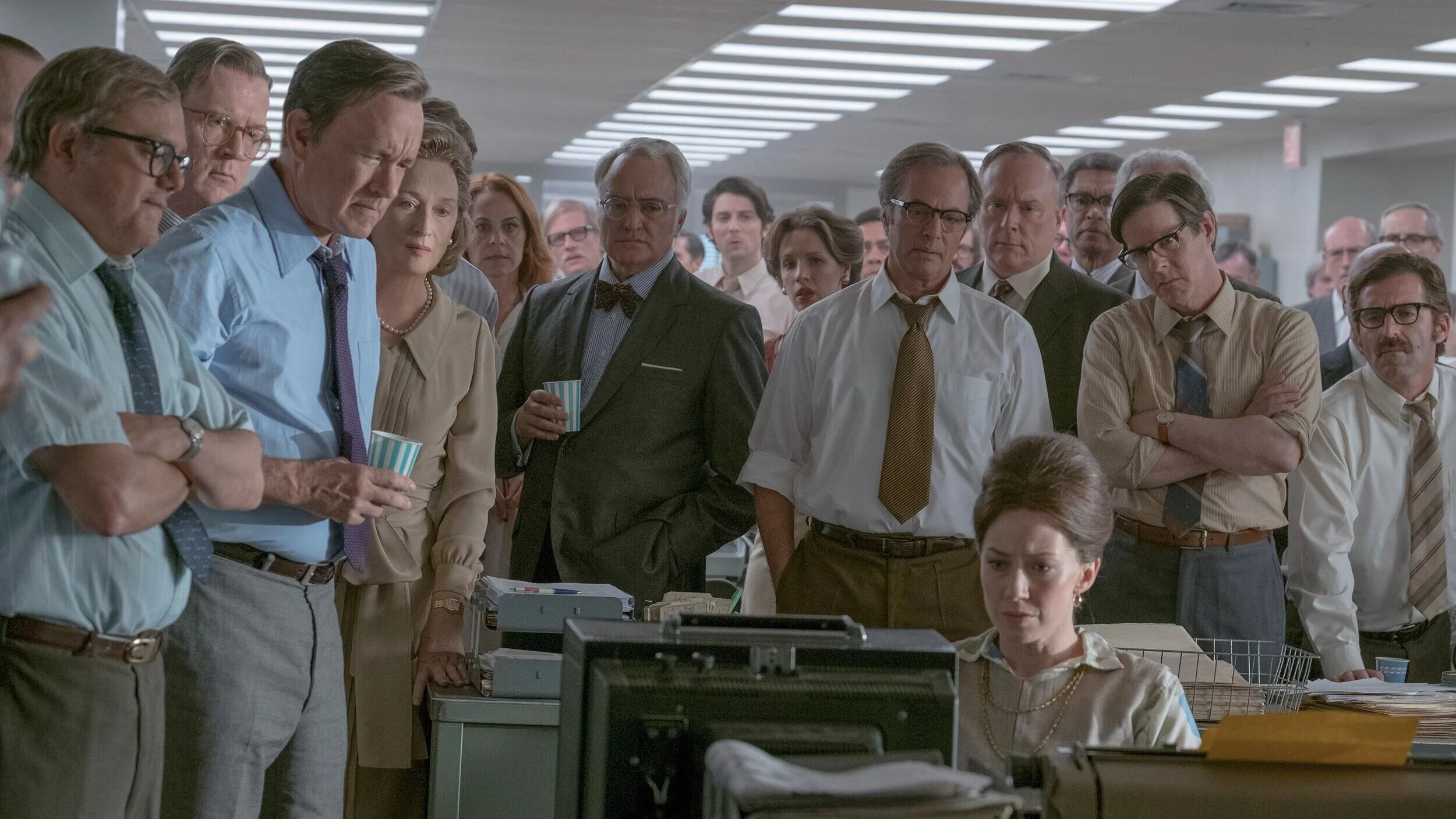The Post
Steven Spielberg’s take on the Pentagon Papers scandal is masterly if dramatically wanting.
Newsfront: Tracy Letts, Tom Hanks, Meryl Streep, Bradley Whitford and Carrie Coon, among others
Once upon a time, the US government was not exactly telling the truth. In the words of John F. Kennedy, “the United States, as the world knows, will never start a war.” Yet, in the late 1960s, the conflict in Vietnam was a catastrophe and the White House whitewashed the fact. Then The Washington Post got wind of a cover-up. But, at the time, The Post was no match for the Nixon administration…
The timing of Steven Spielberg’s film about the freedom of the press could not be more apposite. And the story he’s chosen to tell is anything but fake news. Chuck in that “overrated” actress Meryl Streep – as Katharine Graham, publisher of The Washington Post – and the whole thing starts to smell like cordite. If only the drama on the screen was so explosive. Although top-billed, Ms Streep occupies less screen time than her co-star Tom Hanks, who, as the editor Ben Bradlee, is quite the action man. At one point, he even arrives at Mrs Graham’s home with quite a sweat.
This being a Steven Spielberg movie, it is a work of art. It is meticulously crafted and one never forgets that we are in 1971, if only because of the hairstyles, the posters and the fog of cigarette and cigar smoke. But, really, it could have been more exciting. The opening scene in Vietnam is certainly not Saving Private Ryan and what follows is, well, often quite dull. What is at stake – the liberty of the American media – ends up as so many board meetings about shareholder accountability. One wonders if a docudrama about the Chilcot Inquiry might have been a little more rousing. One senses Spielberg’s desperation. For no apparent reason, he starts tilting his camera all over the place, looming down on his subjects from the ceiling. Why, pray? There is a nod to the filmmaking style of John Frankenheimer, who traded in Cold War paranoia by deep-focusing on his actors in the same frame. But Spielberg has never been a copycat before.
The Post is not a mediocre film, but it could have been so much better. Co-scenarist Josh Singer won an Oscar for his script to Spotlight (2015) but that, too, lacked real human drama. And John Williams’ score, droning over the dialogue, is meddlesome and conventional. The performances are creditable (Tom Hanks is particularly good value), the production design consummate and the dialogue juicy (Meryl Streep: “News is the first rough draft of history”). Yet the most viscerally thrilling scene is the physical typesetting of the paper as it goes to press. Those were the days: when hard news literally got your hands dirty.
JAMES CAMERON-WILSON
Cast: Meryl Streep, Tom Hanks, Sarah Paulson, Bob Odenkirk, Tracy Letts, Bradley Whitford, Bruce Greenwood, Matthew Rhys, Alison Brie, Carrie Coon, Jesse Plemons, David Cross, Zach Woods, Pat Healy, Michael Stuhlbarg, Cotter Smith, Sasha Spielberg, David Costabile.
Dir Steven Spielberg, Pro Steven Spielberg, Kristie Macosko Krieger and Amy Pascal, Screenplay Liz Hannah and Josh Singer, Ph Janusz Kamiński, Pro Des Rick Carter, Ed Michael Kahn and Sarah Broshar, Music John Williams, Costumes Ann Roth.
DreamWorks Pictures/Amblin Partners/Amblin Entertainment/20th Century Fox/Participant Media/Pascal Pictures/Star Thrower Entertainment-Entertainment One.
115 mins. USA. 2017. Rel: 19 January 2018. Cert. 12A.


